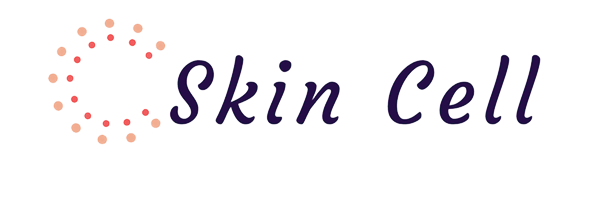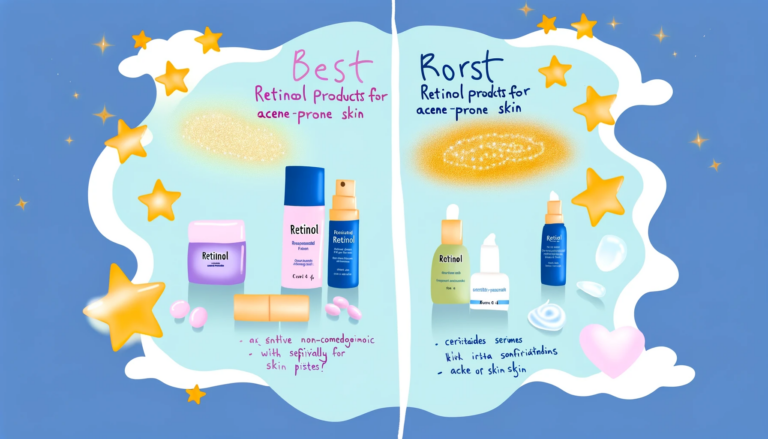Is Your Thyroid Behind Your Cystic Acne?
Battling relentless cystic acne?
It might be time to consider an unlikely suspect: your thyroid. This small gland with a big role in regulating hormones could be influencing your skin’s health in ways you hadn’t imagined.
Thyroid disorders, whether it’s an underactive or overactive gland, can lead to a variety of skin issues, including the deep, painful blemishes characteristic of cystic acne.
Well, we’ll be going over:
- What exactly is cystic acne, and how does it differ from other types of acne?
- How does the thyroid function, and what happens when it’s out of balance?
- Could there be a direct link between your thyroid health and the occurrence of cystic acne?
Let’s dive in.

What is Cystic Acne?
Cystic acne is the most severe form of acne you might encounter. Unlike blackheads or whiteheads, cystic acne goes deeper into your skin and often results in large, red, painful blemishes that can take weeks to heal. The root cause? Clogged pores aggravated by factors like hormonal imbalances, which lead to an overproduction of oil, skin inflammation, and the growth of bacteria within the pores.
Understanding the nature of cystic acne is crucial. It’s not just a surface-level issue; it’s a condition that stems from deep within your skin’s layers. Therefore, typical over-the-counter treatments may not always provide relief. In many cases, a dermatologist’s intervention is necessary to treat cystic acne effectively through prescription medications or other targeted therapies.
In addressing cystic acne, it’s essential to look beyond the skin and consider underlying health issues, such as thyroid disorders, which can exacerbate or even trigger this severe form of acne.
Understanding the Thyroid Gland
The thyroid gland, an innocuous butterfly-shaped organ nestled at the base of your neck, plays a crucial role in your body’s overall functioning. It’s responsible for producing hormones that regulate metabolism, energy levels, and even skin health. Thyroid hormones, namely thyroxine (T4) and triiodothyronine (T3), influence nearly every cell in your body.
When the thyroid produces too much or too little of these hormones, it leads to disorders such as hyperthyroidism or hypothyroidism. These conditions can significantly affect your body’s homeostasis and have ripple effects on various systems, including your skin. Imbalances in thyroid hormone levels can disrupt the skin’s ability to heal and renew itself, potentially triggering or exacerbating cystic acne.
Recognizing the signs of thyroid dysfunction can be the first step toward addressing skin concerns like cystic acne. Symptoms include unexpected weight changes, mood swings, fatigue, and changes in heart rate, among others. If you’re experiencing any of these symptoms along with persistent cystic acne, it might be time to consult with a healthcare provider to explore the connection between your thyroid and skin health.
Thyroid Disorders and Their Impact on the Skin
Thyroid disorders can significantly impact your skin’s health and appearance. When your thyroid produces too much or too little hormone, it can lead to a range of skin issues, including cystic acne. Hypothyroidism (an underactive thyroid) often results in dry, rough, and pale skin, while hyperthyroidism (an overactive thyroid) can cause sweaty and thin skin. Both conditions disrupt your skin’s natural healing process, making it more prone to severe acne.
Your skin relies on a balanced metabolism to regenerate efficiently. A disrupted hormonal balance due to thyroid issues can slow down this regeneration, allowing acne-causing bacteria to thrive and lead to inflammation. It’s crucial to recognize that these skin manifestations may be your body signaling an underlying thyroid disorder.
Seeking guidance from a healthcare provider can help you understand the link between your skin health and thyroid function. Early intervention might not only alleviate your skin concerns but also address any thyroid imbalances, ensuring a dual approach to treatment.
Thyroid Health and Cystic Acne
When diving into the link between your thyroid health and cystic acne, it’s essential to recognize the hormonal interplay that’s at work. Your thyroid, a small gland at the base of your neck, plays a pivotal role in regulating hormones that influence your skin’s condition. Imbalances in thyroid hormone levels, whether too high or too low, can significantly impact your skin’s ability to regenerate and stay healthy.
Hyperthyroidism or an overactive thyroid might lead to an increase in skin oiliness, making you more susceptible to clogged pores and, subsequently, cystic acne. On the flip side, hypothyroidism or an underactive thyroid can trigger skin dryness, yet still contribute to acne by impairing your skin’s healing process.
It’s crucial to pinpoint that hormonal fluctuations linked to thyroid disorders provide fertile ground for cystic acne to thrive. Such imbalances can cause your skin to react more severely to bacteria and inflammation, elevating the risk of developing deeper, more painful acne cysts.
Understanding this connection underscores the importance of a comprehensive approach to treatment, considering not just the symptoms on your skin but also underlying hormonal issues that might be at play.
Managing Cystic Acne Caused by Thyroid Issues
If you’re grappling with cystic acne and suspect your thyroid might be the culprit, there’s a path forward. Managing your thyroid can significantly impact your skin’s health. First and foremost, it’s critical to get a thorough evaluation from a healthcare professional. They can provide a diagnosis and tailor treatments that address both your thyroid disorder and cystic acne simultaneously.
Key aspects of management include:
- Hormonal Therapy: Adjusting your thyroid hormone levels through medication can help balance your skin’s oil production, reducing the incidence of acne.
- Skin Care Regimen: Using non-comedogenic and hypoallergenic products can prevent further irritation or aggravation of your cystic acne.
- Dietary Changes: Incorporating anti-inflammatory foods and reducing dairy and sugar intake can improve both thyroid function and skin health.
Remember, improvement takes time. Consistency in treatment and lifestyle adjustments are your allies in this journey.
Conclusion
Understanding the link between your thyroid and cystic acne is key to unlocking clearer skin. If you’re struggling with persistent breakouts alongside symptoms of thyroid dysfunction, it’s crucial to seek a professional evaluation.
Addressing the root cause by balancing your thyroid hormones could significantly improve your skin’s condition. Remember, managing cystic acne goes beyond topical treatments; it requires a holistic approach that includes medical intervention, lifestyle changes, and patience.
With the right guidance and consistent care, you can achieve healthier skin and a balanced thyroid. Don’t let thyroid-induced cystic acne hold you back—take control of your health and your skin today.






